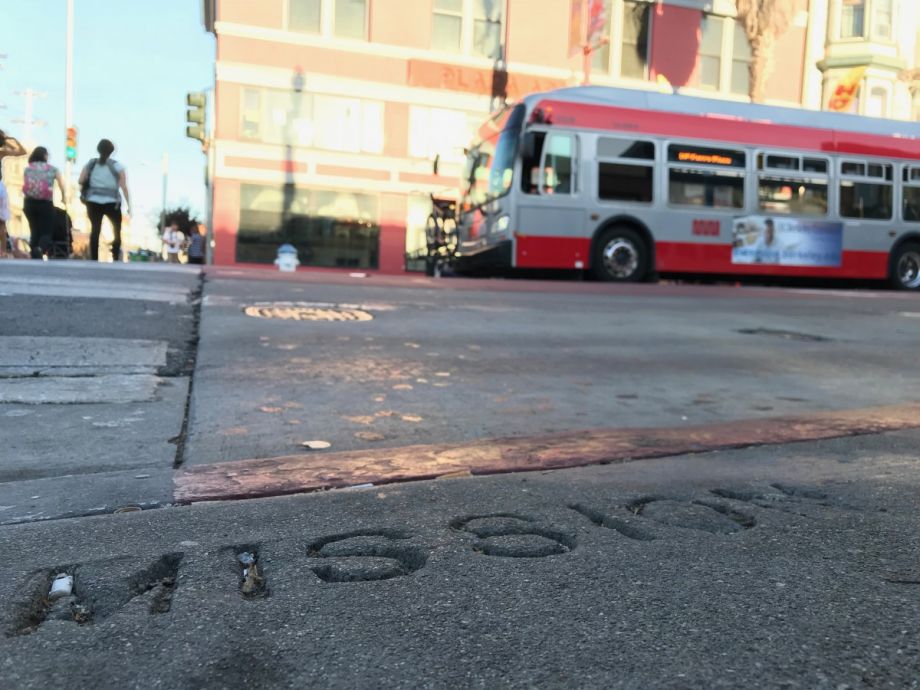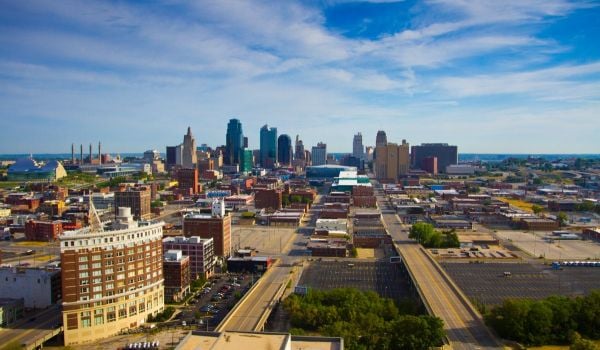If you have a small business with a valid business license in San Francisco and you didn’t get a Paycheck Protection Program loan guaranteed by the Small Business Administration, you can apply right now for an interest-free loan of up to $50,000 for your small business from the Mission Economic Development Agency. Founded in 1973, the nonprofit is based on San Francisco’s Mission District, a historically Latinx neighborhood.
The loan term can be up to six years, unlike the two years for Paycheck Protection Program loans. There are no fees, no collateral required, no minimum credit score required. You won’t need to start making payments until January 2021. You can use the loan to cover payroll, rent, other fixed expenses such as insurance or utilities, inventory or working capital. One thing you can’t get for these loans is loan forgiveness — which you can get for a Paycheck Protection Program loan. (Also unlike Paycheck Protection Loans, the small-business loans offered by Mission Economic Development Agency are open to immigrants without status.) Philanthropic support is covering the interest on these loans, which would otherwise be 4.25 percent.
One of those loans already went to El Pipila, a popular lunch spot, pop-up and catering company created by Chef Guadalupe Guerrero. Guererro runs El Pipila with her two daughters, Brenda and Alejandra Juarez. Its first brick-and-mortar location opened up last year, across the street from AirBnb’s corporate headquarters — which became a regular catering client as well.
Brenda Juarez says the business applied for and got a Paycheck Protection Program loan, but returned it after realizing it was better for their employees to stay on unemployment for now — a common situation among restaurants, some of the hardest hit businesses during this pandemic.
But with the loan from Mission Economic Development Agency, the business was recently able to re-hire one employee who is not eligible for federal assistance, and also re-start paying Guerrero’s salary, even though the business remains closed. Juarez also anticipates much of the loan proceeds will help make rent payments that have been on deferral the past few months, once the business reopens.
The loans are made possible through a web of partnerships. In addition to San Francisco, Mission Economic Development Agency is also providing loans on similar terms to small businesses in Santa Cruz County, Monterey County, and soon to immigrant-owned small businesses across the rest of the Bay Area outside of San Francisco.
With these loans around the Bay Area and down to Monterey, Mission Economic Development Agency is anticipating it will go from a current portfolio of around 100 small business loans totaling around $1.3 million to more than 500 loans totaling more than $10 million — over the next three months. In order to grow that fast, for the first time ever the Mission Economic Development Agency is leaning on California’s state loan guarantee program, which the state tweaked at the beginning of the COVID-19 pandemic in the hopes of facilitating responses like this.
“It makes a huge difference [in fundraising] to be able to say we have a model where the loan capital is fully secured,” says Nathanial Owen, who leads Mission Economic Development Agency’s lending efforts.
Guarantees continue to be the most widespread yet under-appreciated ways to support lenders of all sizes and shapes. Deposit insurance is one form of a guarantee. Between the FDIC and the National Credit Union Administration, federal deposit insurance quietly covers around 10,000 institutions, from the tiniest all-volunteer run credit union with a few hundred thousand dollars in deposits to the largest banks holding a trillion dollars or more.
Loan guarantees are in the headlines these days. In a typical year, the Small Business Administration’s main 7(a) program provides around $23 billion in loan guarantees. This year, the Paycheck Protection Program functioned as a significant temporary expansion of that program in response to the economic fallout from COVID-19, resulting in $512 billion in Paycheck Protection Program loans guaranteed this year as of June 12. While most of that amount is expected to be forgiven, it still took the agency’s guarantees to get private lenders to extend those loans.
But loan guarantees can be tricky. If lenders don’t dot all their i’s and cross all their t’s on the loan paperwork and procedures, the guarantee provider can refuse to repay a loan on behalf of a borrower that has defaulted, leaving lenders holding the bag. One nonprofit built an entire online platform just to help other lenders handle the detailed paperwork for SBA 7(a) loans, including Paycheck Protection Program loans.
California’s Disaster Relief Loan Guarantee Program was around before COVID-19. It offers to cover up to 95 percent of private loans up to $1 million for small business borrowers in declared disaster areas. But the state doesn’t guarantee an unlimited number of loans. It decides on a disaster-by-disaster basis how much money it will set aside to stand by in case of defaulted loans. In response to COVID-19, California committed $50 million for COVID-19 disaster relief loan guarantees.
“We think over the next few months proving this works, it’ll help make the case to increase that commitment,” Owen says.
The state also has to provide guidance to lenders for loan criteria and procedures — which i’s to dot and which t’s to cross. Given the unprecedented scale and speed of the economic fallout from COVID-19, California decided to throw out its existing criteria and procedures. Instead, it started working with lenders like Mission Economic Development Agency to develop loan criteria and procedures that would make sense to meet the unmet needs on the ground in immigrant communities and other vulnerable communities.
“We submitted a very broad loan profile, basically saying this is the box we want to underwrite our loans in and why structured these loans this way,” Owen says.
No credit score and no collateral requirements were obvious choices, as was no social security number required — borrowers can use their Individual Taxpayer Identification Number, or ITIN. This means that undocumented business owners — who make up an estimated one in ten business owners statewide — are still eligible for the loans.
Less obvious was leaving out the requirement that borrowers sign a personal guarantee. If it was required, in case of default a borrower could be forced to sell personal assets like a car or house to repay part of the defaulted loan before the state loan guarantee kicks in. “It defeats the whole purpose of having a loan guarantee if there’s a personal guarantee,” Owen says.
To his surprise, Owen says the California Infrastructure and Economic Development Bank, which administers the loan guarantee program, accepted the criteria as submitted from Mission Economic Development Agency, with no changes or amendments.
“They’ve really run with the opportunity to add more flexibility to the state loan guarantee program in response to this crisis,” Owen says.
With the loan guarantee agreement in place, Owen says it was easier to go out to larger financial institutions to raise the funds to actually make the loans. Mission Economic Development Agency isn’t a credit union or a bank, so it doesn’t have deposits to finance its lending. It borrows them from elsewhere — usually larger financial institutions or foundations.
For San Francisco, Mission Economic Development Agency borrowed $4 million total from two larger banking institutions, Northern Trust and Ally Bank. For Monterey County, the Community Foundation for Monterey County provided a $1 million low-interest loan to the nonprofit. Owen is still out finalizing partnerships to fund the loans for Santa Cruz County and the rest of the Bay Area.
In parallel to all the work above, Mission Economic Development Agency has been talking the whole time with the San Francisco’s Office of Economic and Workforce Development to see how that agency could chip in.
Once the nonprofit had a plan in place, it hoped the city could raise money from private donors to cover the interest on the loans, fees to the state loan guarantee program and even salaries of loan administration staff at Mission Economic Development Agency..
According to Joaquin Torres, director of San Francisco’s Office of Economic and Workforce Development, in raising those private donations it was helpful for the city to be able to tell potential donors that if they wanted to support small business, there was a clear plan in place to multiply the impact of each donated dollar by at least 4 to 1.
The city has raised more than $29 million in private donations so far to support various COVID-19 relief efforts. One million of those dollars so far has gone to Mission Economic Development Agency as part of this partnership.
Monterey is the furthest the nonprofit has ever worked beyond its home in the Mission District, and it wouldn’t be possible without partnering with Santa Cruz-based El Pajaro Community Development Corporation, another nonprofit, to help administer the program for Monterey and Santa Cruz Counties.
The City of Salinas, Monterey County and the National Association for Latino Community Asset Building have similarly provided grants to the two nonprofits to administer state-guaranteed disaster relief loans for small businesses in Monterey County.
But even with as many undocumented or other immigrant small business owners it might help keep afloat in the region, the Mission Economic Development Agency still knows that many will fall through the cracks without greater support from the federal government.
San Francisco is getting an additional $10.9 million in emergency Community Development Block Grant funding thanks to the CARES Act, but that has all been earmarked already for homeless shelters and emergency rental assistance.
San Francisco is also getting $154 million in direct aid as a result of the CARES Act. But Torres expects most of that to get swallowed up by what the city is already estimating to be an overall budget shortfall of as much as $1.7 billion. These private dollars and loan guarantees are basically all that Torres and Owen have to work with right now to support small businesses and their workers in San Francisco.
“What I don’t want to get lost is the fact that these are all emergency funds that are in response to a failure of the federal government,” Owen says. “We shouldn’t be having to come up with all of these piecemeal funds to keep business afloat and keep workers tied to their employment.”
EDITOR’S NOTE: We’ve corrected the number of loans MEDA hopes to make in the next three months, as well as clarified the relationship/partnership between MEDA and El Pajaro.
This article is part of The Bottom Line, a series exploring scalable solutions for problems related to affordability, inclusive economic growth and access to capital. Click here to subscribe to our Bottom Line newsletter.

Oscar is Next City's senior economic justice correspondent. He previously served as Next City’s editor from 2018-2019, and was a Next City Equitable Cities Fellow from 2015-2016. Since 2011, Oscar has covered community development finance, community banking, impact investing, economic development, housing and more for media outlets such as Shelterforce, B Magazine, Impact Alpha and Fast Company.
Follow Oscar .(JavaScript must be enabled to view this email address)










_600_350_80_s_c1.jpeg)






